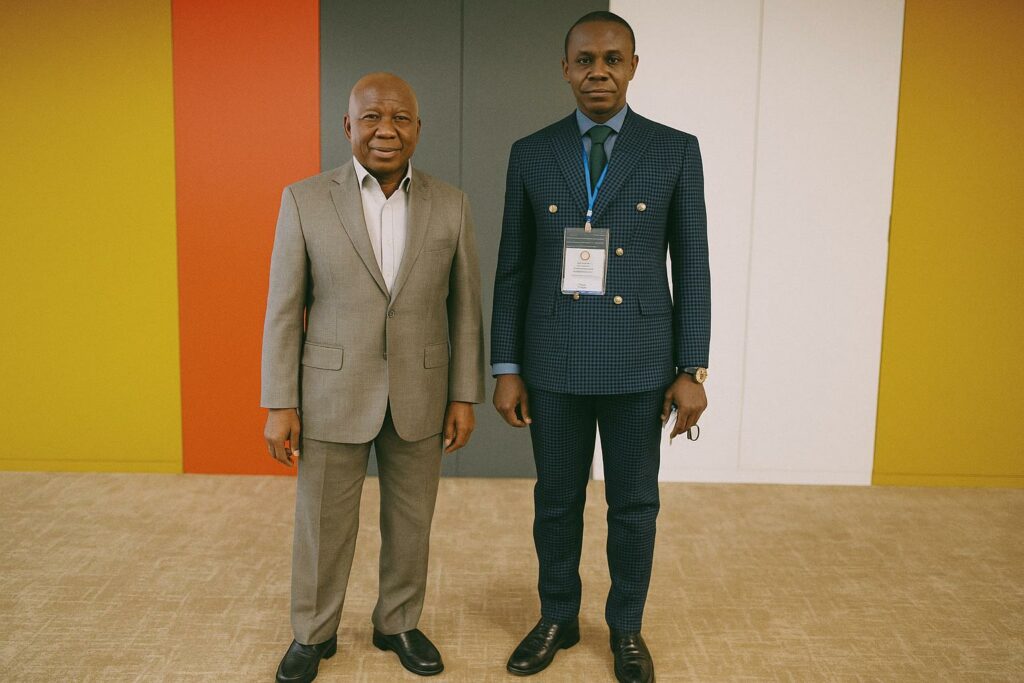A Diplomatic Gathering in Abidjan
In the bustling capital of Côte d’Ivoire, Abidjan, a significant meeting unfolded between Rufin Arsène Bakouétana and Yao Allah-Kouamé, respective presidents of the Congolese Cycling Federation (Fécocy) and the African Cycling Confederation (CAC). Against the backdrop of the 12th international colloquium of the Forum of African State General Inspections, these two leaders exchanged views on June 17, 2025—an encounter that holds the potential to reshape the beleaguered course of Congolese cycling.
Navigating Legal Challenges
Bakouétana’s tenure as Fécocy’s president has been fraught with judicial struggles, an ordeal scarcely resolved by the recent ruling from the Chamber of Conciliation and Arbitration for Sport (CCAS) on June 5, 2025. This judgment has reinstated the embattled leader, enabling him to focus on reconciling Fécocy’s endeavors with continental aspirations.
Yao Allah-Kouamé, who assumed leadership of the CAC in February 2025, conveyed his monitored awareness of these proceedings and extended his congratulations to Bakouétana upon his legal victory—a gesture underscoring both a diplomatic cordiality and an implicit endorsement of progress in Congolese cycling governance.
Preparations for the African Cycling Championship
The impending African Cycling Championship looms large on the horizon, with Brazzaville designated as its venue. This prestigious event, scheduled for August 2025, demands rigorous organizational finesse—one heavily contingent upon collaboration between the Congolese authorities and an appointed managerial partner.
Bakouétana expressed hesitations about the readiness of both infrastructure and athletes, a sentiment that could temper expectations. His assurances to address these concerns with the governmental echelons, however, signal a proactive commitment to ensure the event’s fruition.
Infrastructure and Material Hurdles
A recurring challenge lies in the overdue delivery of cycling equipment, procured in 2022 yet withheld in France due to unmet financial obligations. This logistical bottleneck epitomizes the broader operational constraints confronted by Fécocy.
Nonetheless, Allah-Kouamé lauded Bakouétana’s endeavors to revitalize the sport in Congo—an endorsement that may spur actionable support to resolve these material deficiencies.
Paving the Way for a Transformative Era
With the legal controversies nearing resolution, there is a palpable optimism within the Congolese cycling community. Bakouétana’s ambitions encompass not only reestablishing domestic cycling activities but also positioning Congolese athletes prominently on the African stage.
As the narrative unfolds toward renewal and optimism, the diplomatic dialogues between these leaders may serve as a catalytic force, advancing both regional athletic collaboration and the broader aspirations of African cycling.

